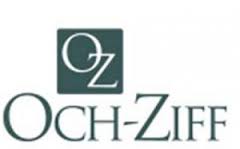Och-Ziff Failures in Due Diligence and Transaction Compliance (Part II)
 The Och-Ziff enforcement action is replete with examples of failures in due diligence and transaction monitoring compliance. Och-Ziff’s bribery schemes were elaborate and intricate and involved complex transactions, particularly in the Democratic Republic of the Congo (DRC), designed to funnel large bribery payments.
The Och-Ziff enforcement action is replete with examples of failures in due diligence and transaction monitoring compliance. Och-Ziff’s bribery schemes were elaborate and intricate and involved complex transactions, particularly in the Democratic Republic of the Congo (DRC), designed to funnel large bribery payments.
In the DRC, Och-Ziff executed the scheme primarily through two senior employees and an Israeli partner (DRC Partner), who were committed to funneling bribes to two DRC foreign officials in exchange for access to mining ventures and concessions. Och-Ziff entered into a joint venture with DRC partner to carry out this elaborate and continuing bribery scheme. Interestingly, Och-Ziff owned only 40 percent of the joint venture but retained management control over a variety of functions, including legal, accounting, finance and other basic functions. The two Och-Ziff employees never informed anyone at Och-Ziff that they had agreed to pay bribes on a continuing basis to fund the joint venture’s activities.
As a first step, the Och-Ziff employees engaged an investigative firm to conduct due diligence of the DRC Partner. The report raised numerous red flags and corruption concerns relating to the DRC Partner focusing on his relationship with two DRC foreign officials. DRC Partner had very close relationships with the two foreign officials and was alleged to have exerted influence with the two foreign officials. DRC Partner was alleged to have “unsavory” business associates but there was no firm proof that DRC Partner engaged in bribery.
Based on this report and other information collected by Och-Ziff senior officials, there was strong opposition to entering into a joint venture relationship with DRC Partner. An Och-Ziff employee also was convinced that DRC Partner had acquired mining assets in the DRC using bribery payments. Despite these concerns, Och-Ziff went forward with the relationship with DRC Partner.
An outside counsel who reviewed the arrangement, and in particular, a proposed convertible loan to DRC Partner, recommended that such an agreement would be permissible so long as DRC Partner did not have any “discretion” as to the use of the funds. Subsequent agreements, however, gave DRC Partner significant discretion in the use of the funds.
DRC Partner and Och-Ziff agreed to pursue three initial transactions – a $150 million purchase of stock from a DRC copper mine company; a $200 million investment and purchase of a 50 percent interest in a copper and cobalt mine; and the purchase of 55 percent in Africo Resources Limited (“Africo”) in a nearby copper and cobalt mine. Included in the funds used for these transactions were bribery payments to one of the two DRC foreign officials.
Och-Ziff made no attempt to subject these expenditures to any financial controls other than to tie them to the original convertible loan. In doing so, Och-Ziff ignored the control limiting DRC Partner’s discretion to expend funds. The two Och-Ziff employees who were familiar with the bribery scheme pushed through the transactions knowing they were going to be used to pay bribes to DRC foreign officials.
After acquiring the 55 percent interest in Africo, DRC Partner funneled bribes totaling approximately $900,000 to pay judges, lawyers and other government officials to reverse a court decision against Africo. An additional $2.5 million bribe was paid to the same DRC foreign official.
Just like many other FCPA enforcement actions, the bribery scheme was internally detected by an internal audit conducted in relation to use of some of the convertible loan funds. The audit report raised significant questions and recommended that the issues had to be considered at the highest levels of the company. The report, however, was changed at the direction of one of the two employees responsible for the bribery scheme and investment operation.
In Libya, one of the two Och-Ziff employees sought to engage a Libya intermediary to assist in securing investments from Libya’s Investment Authority or sovereign wealth fund. The Och-Ziff employee knew that Och-Ziff would have to pay bribes to various Libyan officials to secure the investments.
 As an initial step to secure the cooperation of the Libya agent, Och-Ziff invested in a real estate development project founded by the agent. Och-Ziff’s payments to the agent included a $400,000 payment for bribes needed to secure approval of the project from Libyan government officials.
As an initial step to secure the cooperation of the Libya agent, Och-Ziff invested in a real estate development project founded by the agent. Och-Ziff’s payments to the agent included a $400,000 payment for bribes needed to secure approval of the project from Libyan government officials.
Och-Ziff never conducted any due diligence nor executed a written contract with the agent. Later, a due diligence report was prepared and identified red flags that needed to be resolved. Nonetheless, Och-Ziff continued to work with the agent.
Eventually, the agent negotiated a fee of $3.75 million in exchange for a $300 million investment by the Libyan Investment Authority in Och-Ziff funds.
As recounted in the Statement of Facts, Och-Ziff, on numerous occasions, fell short in applying due diligence standards and procedures to a number of transactions and basic financial controls regarding expenditure of large amounts of money to partners and other related parties. Och-Ziff failed to apply basic financial controls to large expenditures that were made to related parties and joint venture partners. Additionally, when evidence of misuse of funds was identified, Och-Ziff employees ignored the obvious red flags and continued ahead with the financial transactions. Further, Och-Ziff continued with financial transactions where corrupt payments were clearly required to continue a transaction.
















1 Response
[…] Read Full Article: Och-Ziff Failures in Due Diligence and Transaction Compliance (Part II) – Corruption, Crime &a… […]